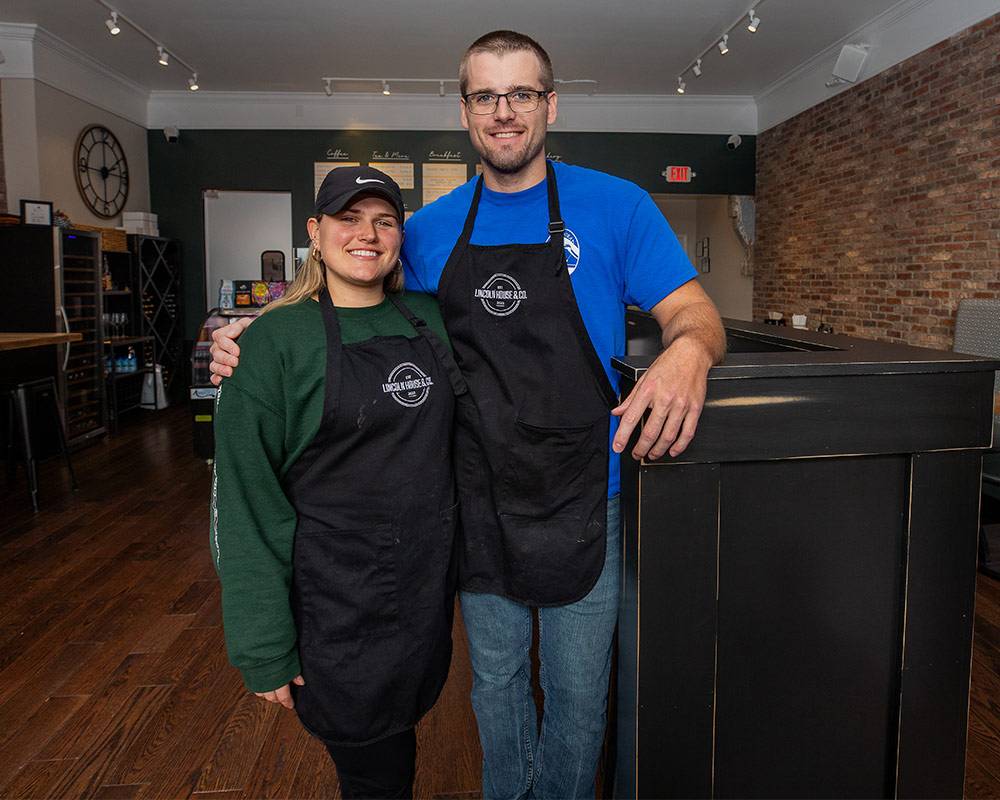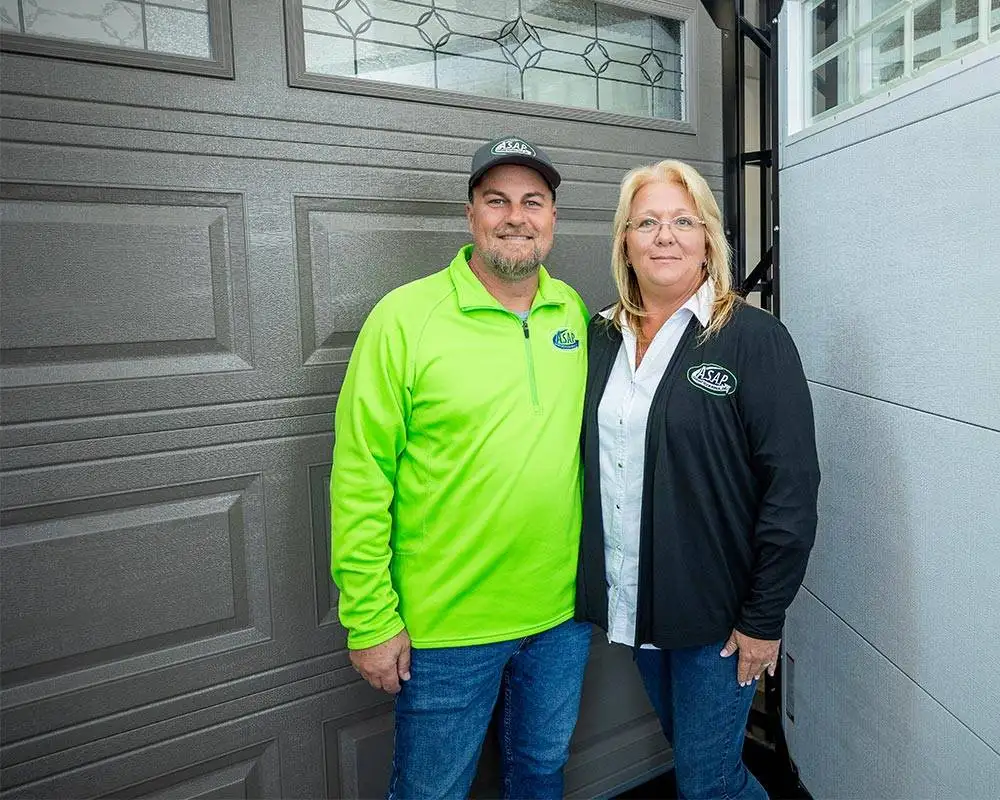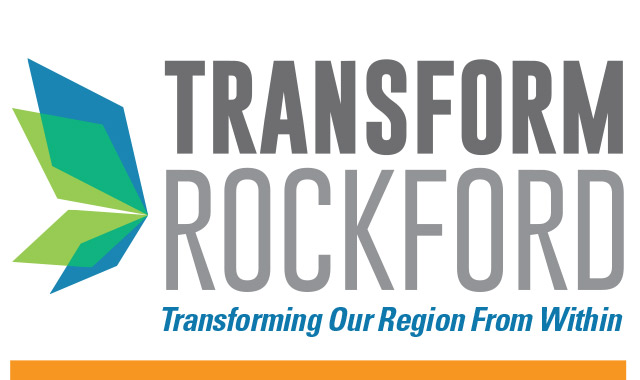What if our employers could find the talent they need, and our schools could prepare workers faster than ever before? That could be truly transformative – and a competitive advantage for our region. It’s already happening.

What if local employers could easily find the talent they need, and people could enter a rewarding and well-paying career with fewer barriers? That could be transformative for a community.
Since Alignment Rockford was founded in 2009 to strategically align local schools and community partners, Rockford Public Schools (RPS) and Rock Valley College (RVC) have taken a leading role in reshaping the way we develop our workforce.
The operative concept is “Cradle to Career,” the idea that at any point in life, we can equip ourselves with the skills that are critical for career success.
From an early age, nurturing creates a firm foundation.
“We play Monopoly with our grandsons, and there’s a whole thought process there: ‘Oh, I’ve got these properties but I want this one, too,’” says Jon Bates, president of Community Foundation of Northern Illinois (CFNIL). “That ability to hold thoughts in mind and act on them is a fundamental human skill, but it’s a fundamental skill that’s also applied in the workforce.”
Data has shown that children need more focused support from an early age, to ensure they’re ready for school. So, Transform Rockford, along with RPS and Alignment Rockford, have teamed up with Chicago-based Erikson Institute to better understand the strengths and weaknesses of children in each neighborhood. Research concluded this fall is yielding critical data that will inform programming decisions next year, says Anisha Grimmett, executive director of Alignment Rockford.
Area high schools have seen some of the most radical transformations, aimed at improving both graduation rates and career achievement. The introduction of Career Academies means all RPS high schoolers now enter small learning communities focused around four employment sectors: Business, Production, Service and Health. Students can choose from among 14 pathways exploring subjects like graphic arts, manufacturing, engineering, public safety and health care.
Students move from freshman career exploration to on-site visits and job shadowing experiences closer to graduation. So far, 17 local organizations, ranging from the Rockford Park District and Midland States Bank to local manufacturers, have signed on as Pathway Sponsors, and Grimmett says she welcomes new community partners. She hopes to see higher graduation rates as these pathways help more students to see the value of their education.
“The other benefit of success is Rockford employers are employing and recruiting more students from Rockford Public Schools,” she says. “They see the value of engaging with RPS high school students as their future workforce, and they see an increase in employee retention rates because they’re hiring local talent that’s more likely to stay in Rockford.”
The alignment of Rockford’s schools is leading to new opportunities through the Linking Talent with Opportunity initiative between RVC, Freeport’s Highland Community College and their nearly 20 feeder districts. Thanks to a three-year, $675,000 grant from CFNIL these partners are aligning their curriculum with industry needs, sometimes getting high schoolers valuable certifications needed for entry-level work.
“This accelerates people into employment,” says Bates. “It’s not just learning to earn but it’s earning while you’re learning.”
Oregon High School, in Oregon, Ill., is already reaping the benefits of another CFNIL grant for a new welding lab where students are building high-demand skills. At the same time, the school has opened its doors to local workers seeking recertification.
Which raises another point – this so-called jobs pipeline isn’t only for young people. With an average student age around 25, RVC is providing critical skills – through degrees and industry certifications – that are helping people to “stack” credentials to advance their careers.
Thanks to a $1.5 million workforce grant from the Illinois Community College Board, RVC is targeting one corner of the population where workforce development is needed but often overlooked. This grant will support the education of 150 people, at least 60 percent of which will be African-American, and at least 30% of which will be living below the poverty line.
“We know that 41% of African-Americans and 24% of Hispanics live in poverty in Rockford, but 22% of the total population lives in poverty,” says Chris Lewis, vice president of community outreach & strategic partnerships at RVC.
Grant funding will cover tuition and other related expenses as students earn certifications in either truck driving, CNC manufacturing operation, cold forming manufacturing or industrial welding. Along the way, students will also receive training in some of the “soft skills” employers look for – qualities like punctuality, abstinence from drugs and social skills.
“This will give them an opportunity to get specific training in an area that will lead to employment that will pay at least $15 an hour, which is more of a living wage for them to survive,” says Lewis. And, he adds, it can provide an entry point into a rewarding career with advancement potential.
“Hopefully there is a significant number of individuals who, once they get a taste of what those opportunities can do for them, it will motivate them to do more and motivate others they know,” he adds. “They’ll say, ‘If Chris can do it, I can do it, too.’”
To learn more about strategic improvement of the Rockford region, visit TransformRockford.org.




















































